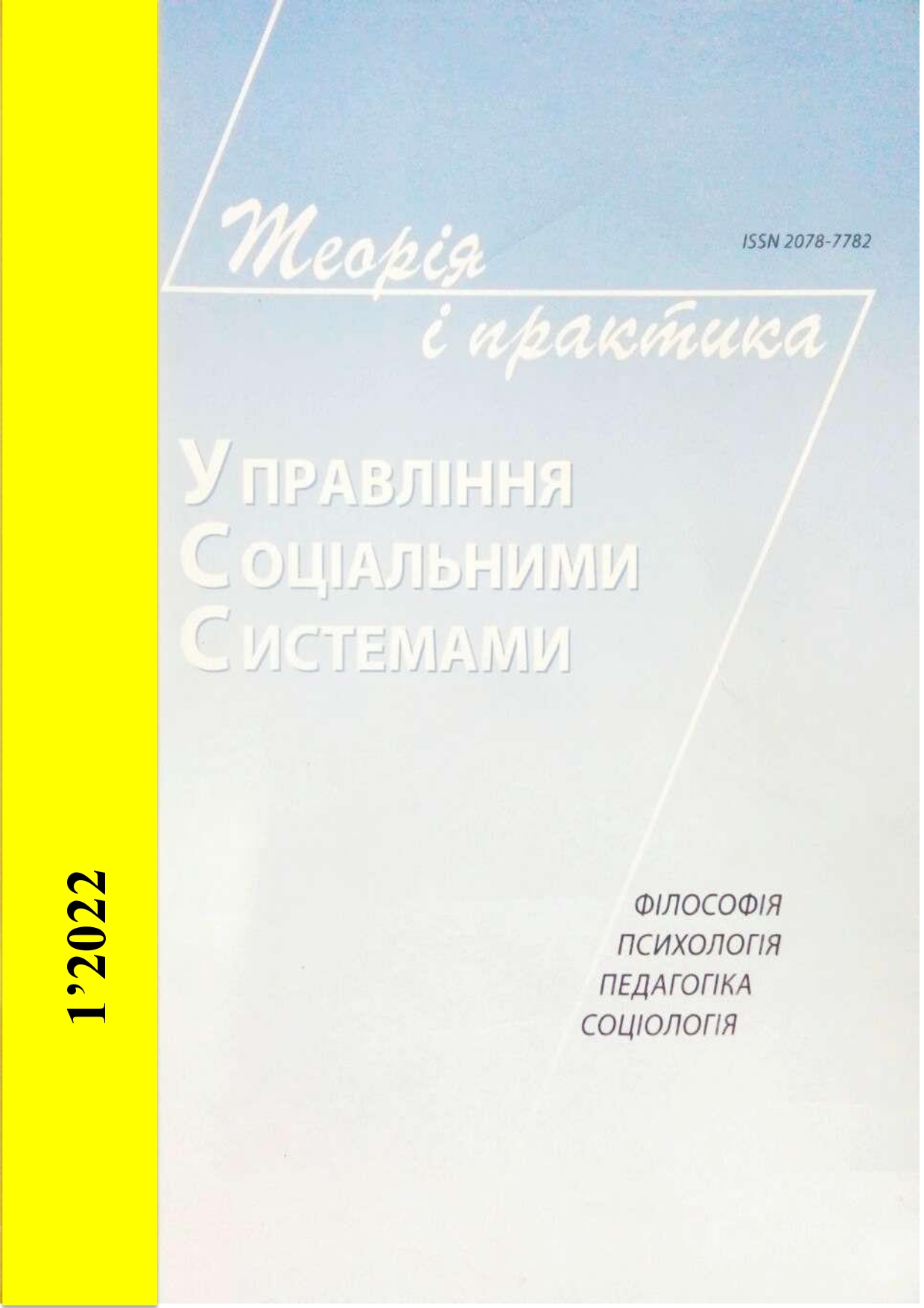ТРЕНІНГОВІ ТЕХНОЛОГІЇ ЯК ЗАСІБ РОЗВИТКУ ЕМОЦІЙНОГО ІНТЕЛЕКТУ
DOI:
https://doi.org/10.20998/2078-7782.2022.1.02Ключові слова:
лідерський потенціал, емоційний інтелект, професійна підготовка, тренінг, технологія, завклад вищої освіти, технічний університет.Анотація
в публікації висвітлено поняття емоційний інтелект як здатності точно сприймати, оцінювати і виражати емоції. Особлива увага приділена аналізу тренінгу як формі активного навчання, метою якого є формування лідерського потенціалу майбутніх фахівців ЗВТО. В статті висвітлені основні принципи та методи тренінгової роботи, зокрема розглянуто тренінгову технологію для розвитку емоційного інтелекту. Під час констатувального етапу педагогічного експерименту доведено необхідність розробки тренінгу для розвитку емоційного інтелекту для студентів технічного університету. Висвітлено особливості застосування тренінгових технологій під час формувального експерименту в експериментальній групі. В статті доведено ефективність застосування тренінгових технологій в ЗВТО для розвитку оемоційного інтелекту – основної складової лідерського потенціалу.
Посилання
1. Ann, L. F. (2005), “Psychological training with teenagers”, SPb. : Piter, p. 271
2. Bakirova, H. Kh. (2004), “Personnel management training”, SPb. : Mova, p. 400
3. Breslav, H. M. (2004), “Psycho-logy of emotions”, M. : “Academy”, p. 544
4. Hranovskaia, R. M. (1988), “Elements of practical psychology”, ed. 2nd. L .: Izd-vo Leningradskogo un-ta, p. 560
5. Houlman, D., Boiatsis, R., Makki, E. (2007), “Emotional leadership”, The art of managing people based on emotional intelligence, M., p. 418
6. Hura, T.,Romanovskyi, O.,Knysh,A. (2017), “Psychology of business leadership”, a textbook, H. :“Madrid Printing House”,p.100
7. Knysh, A. Є. for the head ed. Romanovskoho, O. H., Kalashnykovoi, S. V. (2016), “Emotional intelligence of a business leader”, a textbook, K. : SE “Research Center” Priorities””, p. 40
8. Zhuravleva, M. O. (2011) “Study of emotional intelligence of practical psychologists”, Research methodology and modern social, economic and psychological problems of society development: collection of scientific works. Donetsk, pp. 168–174
9. Yzard K. E. (2000), “Psychology of emotions”, trans. with english SPb. : Peter Publishing House, p. 464
10. Kovryha, N. V. (2003), “Stress-protective and adaptive functions of emotional intelligence”, author’s ref. dis. for science. degree of cand. psychol, science: special. 19.00.01, K., p. 20
11. Liusyn, D. V. (2006), “A new technique for measuring emotional intelli-gence”, the EmIn questionnaire. Psycho-logical diagnosis, no. 4, pp. 3–22
12. Styven, Dzh. Stein, Hovard, Y. Buk. (2007), “EQ Benefits: emotional intelli-gence and your success”, Dnepropetrovsk : Balance Business Books, p. 384
13. “Theoretical and methodological bases of personal growth training”, available at: https://pidru4niki.com/1417012063006/psihologiya/teoretichni_metodichni_osnovi_provedennya_treningu_osobistisnogo_zrostannya (appeal date 15.02.22)
14. Shvalb, Yu. M. (2005), “A problem-based approach to building training at the university. Psychological training techno-logies in law enforcement”, scientific method. and organizational-practical. probl. Imple-mentation and use., prospects for deve-lopment.: materials intern. scientific-practical conf., May 27–28, Donetsk : DUI, p. 217
15. Shepeleva, L. N. (2006), “Socio-psychological training programs”, SPb. : Piter, p. 240
16. Chala, Yu. M., Shakhraichuk, A. M. (2018), “Psychodiagnostics”, textbook, Kharkiv : NTU “KhPI”, p. 246
17. Bass & Stogdills (1990), Hand-book of leadership “Theory, research, and managerial applications”, New York : Free Press ; London : Collier Macmillan, p. 1180
18. Dickson, M. Den Llartog, D., Making, Mitchelson, J. (2003), “Research on Leadership in a Cionh Cultural Context: Progress and Raising new Questions”, The Leadership Quarterly, vol. 14
19. Gardner, J. Margaret Grogan, editor, introduction by Michael Fullan (2013), “The nature of Leadership”, The Jossey-Bass Reader on Educational Leadership; Third edition. Sun, Francisco : Jossey – Bass A Wiley Brand, pp. 39–47
20. George, G. (2000), “Emotions and Leadership: the Role of Emotional Intelligence”, Human Relations, vol. 53
21. Gibb, K. (1958), “An Inte-ractional View of The Emergence of Leadership”, Australian Journal of Psychology, no. 10
22. Goleman, D. (1998), “Working with emotional intelligence”, New York : Bantam Books
23. Goleman, D. (2000), “Leadership that Gets Results”, Harvard Business Review, vol. 78 (2)
24. Thorndike, R. K. (1920), “Intelligence and Its Uses”, Harpers Magazine 140, pp. 227–335
25. J. D. Salovey, P. (2005), “Emotional intelligence”, available at

##submission.downloads##
Опубліковано
Номер
Розділ
Ліцензія
Авторське право (c) 2022 Тетяна Гура

Ця робота ліцензується відповідно до Creative Commons Attribution-NonCommercial-NoDerivatives 4.0 International License.
Автори, які публікуються у цьому журналі, погоджуються з наступними умовами:- Автори залишають за собою право на авторство своєї роботи та передають журналу право першої публікації цієї роботи на умовах ліцензії Creative Commons Attribution License, котра дозволяє іншим особам вільно розповсюджувати опубліковану роботу з обов'язковим посиланням на авторів оригінальної роботи та першу публікацію роботи у цьому журналі.Автори, які публікуються у цьому журналі, погоджуються з наступними умовами:
